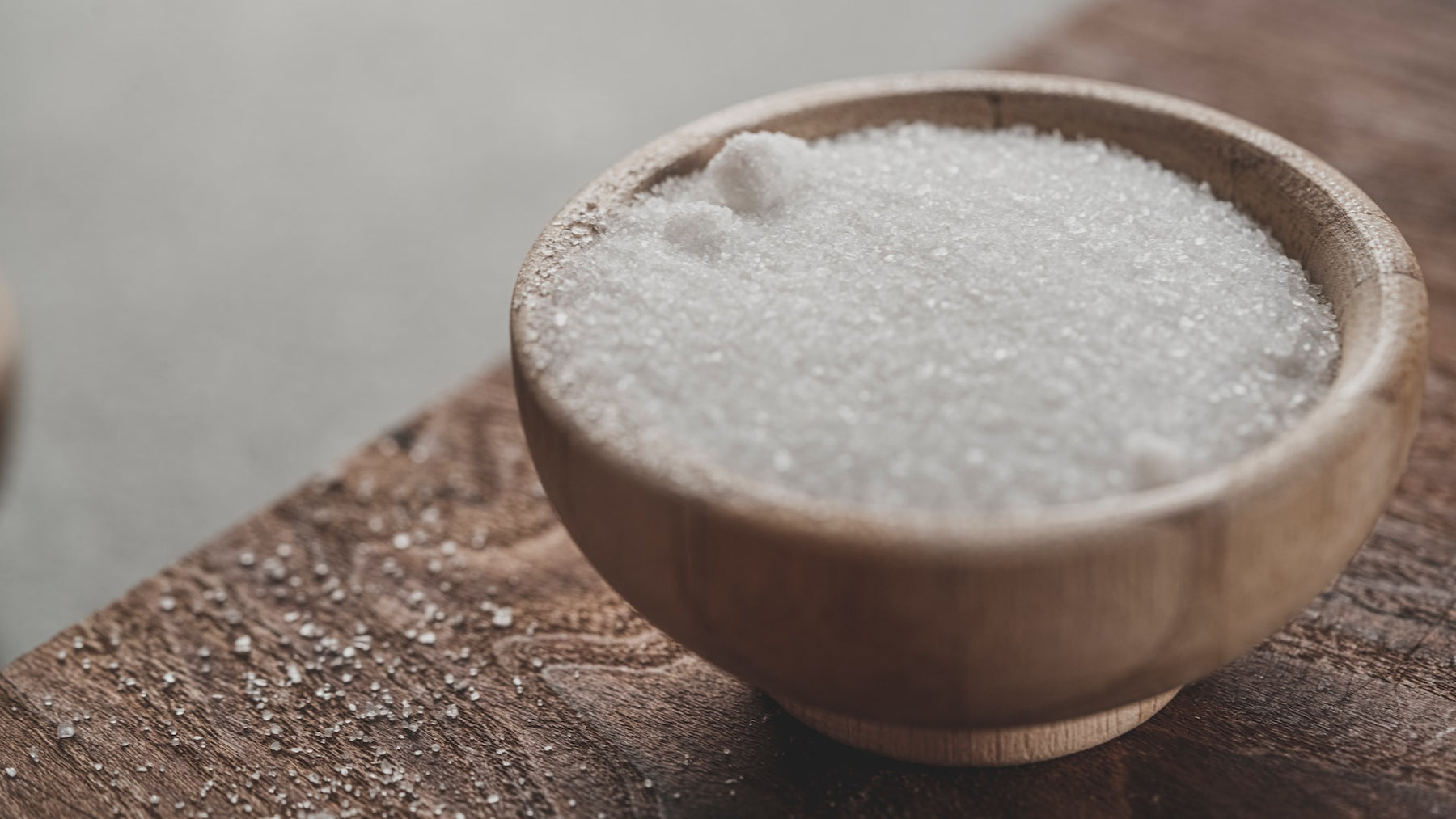
The Addiction I Kept Hidden
First off. I don’t do drugs.
I’ve never done drugs.
Anything illegal or illicit is not something I’m interested in, and obviously, totally against.
But, the truth is, I did have an addiction. And, boy, was it bad. Before I was a doctor, I had no idea the harm I was doing to my body.
Fortunately, now I know.
When I mentioned in the last email there was one substance that “is one of the most harmful substances your body could ever come across, for memory and for general health,” I was talking about my “hidden addiction.”
Any idea what it is?
No? It’s an addiction I’d be willing to bet you have, too.
And no, I’m not talking about a serious Netflix addiction.
It’s probably the most prevalent addiction in the U.S.
And… well, I’m going to draw it out anymore…my hidden addiction was an addiction to sugar.
You’ve heard how bad sugar is for you, but I don’t think you really understand how damaging this substance is.
Let me explain.
Why Is There Such a Thing as a “Sugar Addiction?”
One thing that might surprise you is an addiction to sugar is as hard to break as an addiction to cocaine. That’s because sugar is as addictive (if not more addictive) than cocaine.
That says a lot.
And, not only is it just as addictive, it’s actually just as bad for you (again, if not worse).
That’s because sugar addictions have been attributed to a myriad of conditions concerning:
- Blood Sugar
- Immune Health
- Body Weight
- Developmental Health
- Age-related memory loss
And much, much more.
But what’s important to know isn’t just the harmful effects of sugar, but the exact mechanism that causes sugar to work against you.
Here’s what’s going on anytime you eat a candy bar, drink a glass of milk, or enjoy a bagel with cream cheese.
When you take a bite of that oh-so-tasty breakfast bar, or power down a donut, your body sees a massive spike in its levels of serotonin. That’s partially where that sugar “high” comes from.
The other aspect of this addiction is what sugar does to your hormones.
For many people, eating sugar triggers the release of a hormone called ghrelin. In a study of 579 individuals, it was found after a large majority of participants ingested sugar or alcohol (which is a form of sugar), their levels of ghrelin increased dramatically. The reason this is important is because ghrelin is a hormone that tells your brain you’re hungry.
That means eating sugar can send a signal to your body that you need to eat more. Even if that isn’t true.
Additionally, when you ingest sugar it can have adverse effects on your insulin levels.
Taking a break off a kit-kat loaded with sugar will send your insulin levels through the roof.
Once your insulin levels rise that high, there’s an inevitable crash. Which then gives your body a signal “it’s time to eat again.”
And so the cycle begins anew.
But here’s the kicker.
Americans have been conditioned to believe that fat is the worst thing for them, not realizing this blanket statement is fundamentally untrue.
While I would argue that’s definitely true in the case of certain types of fats (trans-fats, inflammatory fats, polyunsaturated fats, etc.), it’s definitely not something I completely agree with.
The reason this is a problem is because many people have bought into the lie that a “fat-free diet” is the best diet to follow.
So consumers have been gobbling up items they believe are “fat-free” but are in fact loaded with sugar (which eventually turns into fat).
And, thus, their sugar addiction is born.
The Untold Dangers of Sugar
To say a sugar addiction is born isn’t really true.
Unfortunately, most people are actually born with sugar addiction.
Sugar is in everything. It’s in the yogurt you have for breakfast. It’s in the “healthy” sub sandwiches you eat. It’s even in the that fruit juice you’re convinced is so good for you.
And the consequences the addiction has on your body is dreadful.
I mean absolutely dreadful.
Look at it this way.
According to the CDC, “Childhood obesity has more than doubled in children and quadrupled in adolescents in the past 30 years.”
And those same stats show that children and adolescents who suffer from obesity are 5 times more likely to be overweight later in life.
Thus, a crisis has been born out of an unhealthy fear of fat.
And the consequences are positively deadly.
One study made the argument that as many 180,000 people died worldwide in 2010 year as a result of their addiction to sweetened beverages. The authors rightly assume chronic diseases such as diabetes and cancer are associated with sugar addictions.
Sugar has even been found to damage the heart.
A 2013 study in the Journal of the American Heart Association was able to make an observation that sugar can harm the part of your heart that pumps blood. The study showed that glucose metabolite glucose 6-phosphate (G6P) (found in sugar and some starches) altered the dynamic of protein in the heart.
As the observers noted, the constant presence of G6P could alter the muscle protein in the heart causing heart disease.
And get this:
Like I mentioned in the last email, sugar can harm your memory.
Here’s how it damages your ability to think clearly and age gracefully.
A 2009 study by Washington University School of Medicine noticed that glucose consumption ages our cells.
This process can have significant effects on sensitive neurological structures. And another study yielded some similar results. In 2012, the Department of Integrative Biology and Physiology at UCLA showed that as a result of too much sugar (and the onset of metabolic syndrome), it greatly “exacerbated dysfunctions in insulin receptor signaling and cognition.
The truth is, sugar has so many potentially harmful effects it’s quite disheartening.
Especially due to the fact that it’s in everything.
Sugar comes in many different forms and varieties.
There’s:
- Sucrose: Also known as table sugar. Not good.
- Glucose: This is “blood sugar” and is found in fruits and veggies. One of the better forms of sugar.
- Fructose: Found in fruits. In low amounts it’s OK, in higher amounts, no.
- Lactose: Found in milk, it’s not good for you.
- High fructose corn syrup. Just plan awful. Avoid at all costs.
- Dextrose: Found in plants, it’s not the greatest thing because it spikes insulin levels.
Plus many, many more.
So What Can You Do?
Well, avoid sugar.
I know it’s a no-brainer, but it’s your best option.
If you can, do a sugar cleanse to rid yourself of your addiction. This is what it takes for most people.
Secondly, find natural, alternative sweeteners like Stevia or Erythritol.
Do not depend on artificial sweeteners as there is a large amount of research to show they’re equally harmful.
And lastly, give yourself grace.
A sugar addiction is extremely hard to overcome.
But, with hard work and diligence. you can rid yourself of the “white menace.”
And, there you have it. My “hidden addiction.”
Talk soon,
Dr. Wiggy
www.HealthAsItOughtToBe.com



